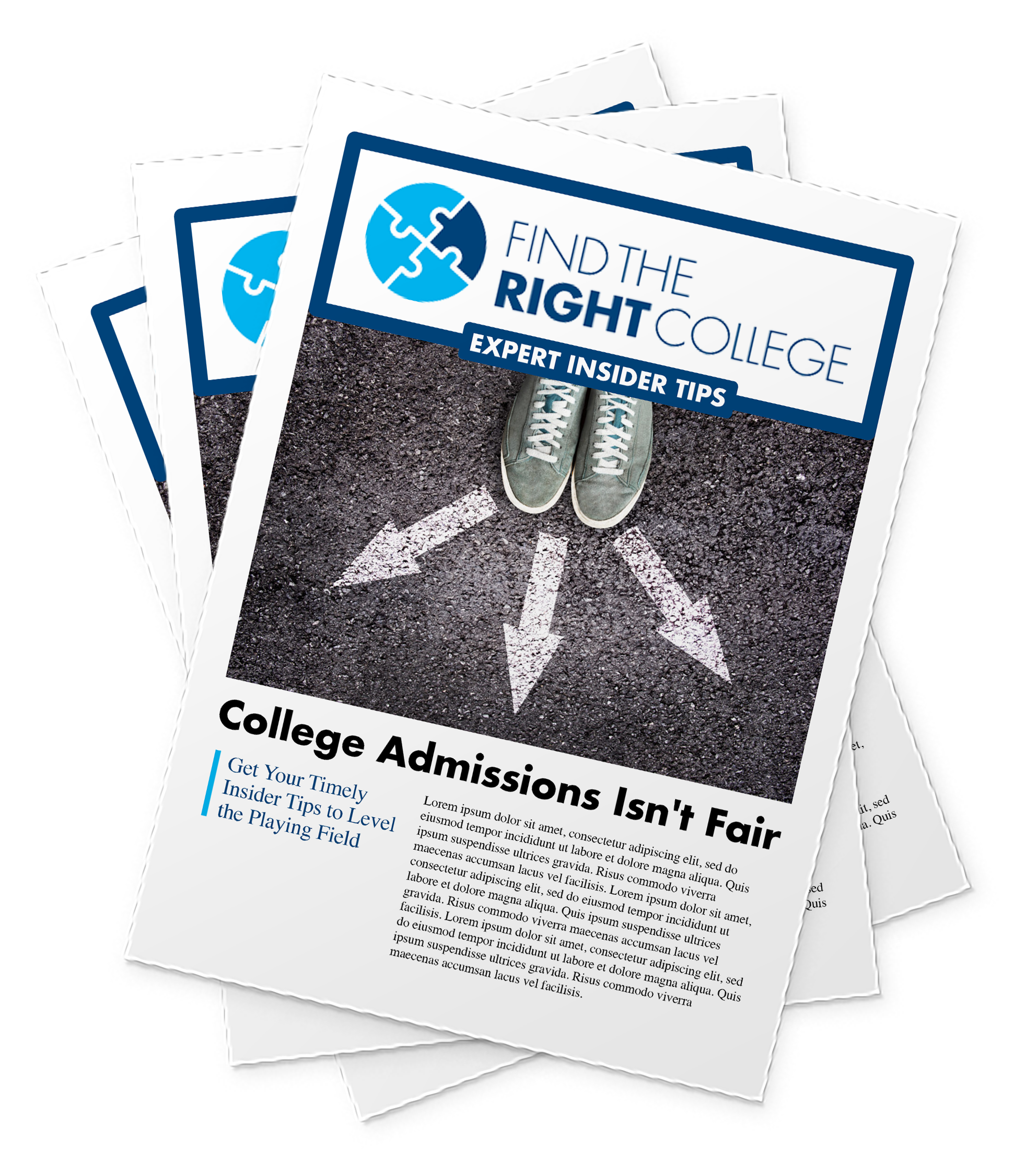If you haven’t applied to college recently, you might be surprised to find something there that wasn’t before — a resume. Whereas this used to be something that was developed after college and when on the job hunt, colleges and universities are finding them helpful in making their final decisions.
Every Spring, most of my juniors are working on putting together their resumes in anticipation of application season ahead. I truly enjoy working with students on their resumes, as it gives us a chance to reflect on what they have done and what they value.
However, the dominant question in a student’s or parent’s mind at this point is often less about what a student values and has accomplished, and usually more focused on what colleges want to see on a resume.
Most students and parents believe that colleges want to see community service on a resume, along with school involvement and especially leadership. While these are good activities, I think it’s important to break down what colleges care about on a resume and how you might think about fine tuning your resume to make the most out of your college application process.
What’s really important?
I can confirm that what most people believe about college resumes is generally true, colleges like to see student involvement in schools and communities — for example, sports, school clubs, community organizations, or musical groups. They do like to see leadership, where students have been elevated by peers or teachers to a level of responsibility, and community service where students are helping others and helping make the world better. A “good” college resume is one that demonstrates to a college your personal qualities (leadership, altruism, musical talent, commitment, etc.), and also demonstrates to the college that a student will join in and be a part of the college’s community – play sports, volunteer, be in clubs, etc.
Probably the biggest misconception among students and families is that students are required to “check” all of the above “boxes.” The example I hear most often is that a student “has” to have community service to have a good resume. That is not true – colleges appreciate seeing a variety of activities, and the most important thing is to have a set of activities that demonstrate involvement and personal qualities, priorities, and values.
Don’t just “go through the motions.”
Over the years, I have learned that trying to check off certain boxes on a resume isn’t helpful for two reasons. First, colleges, don’t have clear-cut criteria about what they actually want, so the goal is unclear.
Second, students need to find activities that help them learn, grow, gain skills, and discern paths (career, social, etc), so following a set recipe for activities can hinder students in the very growth that colleges want them to demonstrate. In my opinion, working to be the best teenager you can be – by taking risks, helping others, and gaining experiences and skills – you actually become the best applicant to college you can be.
Often, after an initial draft of a resume, I will ask a student “what does this resume say about you and what you prioritize?” or “What qualities that you have are not reflected here?” From there, we will discuss ways to fine tune the resume so that students can use their time efficiently and put together a best possible resume.
What’s next?
If you are asking what else you could add to your resume, or what would make it look better to colleges, I would encourage you to think about what you are learning or demonstrating from the experience. Have you taken any risks outside of your normal geographic or social groups? Have you demonstrated a desire to help others? Have you taken on responsibilities and learned about running a group or a project? Even within the activities you already have on your resume, you can take on a responsibility (organize something), demonstrate concern for others (collect used gear for donation), or risk taking (try a new location or join with a group from another part of town or the world).
Finally, while the resume is a part of your application for college, I would encourage you to consider it a double-sided exercise. Your resume reflects your life – your values, your priorities, where you spend your time. Thinking about your resume not only helps you refine your college applications, but also helps you have a stronger sense of who you are and what you are committed to. Think about what experiences will help prepare you for college, the world of work, and the world of adulthood, and cultivate as many of those as you can find! You might find that in the process of trying to engage in the world and grow as a person, you actually become more of the type of mature, prepared, and thoughtful student that colleges like to admit.
Nicole has dedicated the entirety of her 20 year career to encouraging higher education opportunities. After graduating from Vanderbilt, she worked in her alma mater’s admissions office. The, she completed her PhD in Counseling so she could bring that expertise into college counseling. Nicole partnered with her former Vanderbilt colleague, Fitz Totten, to form Find The Right College and support their mission to make trustworthy advising more accessible.



